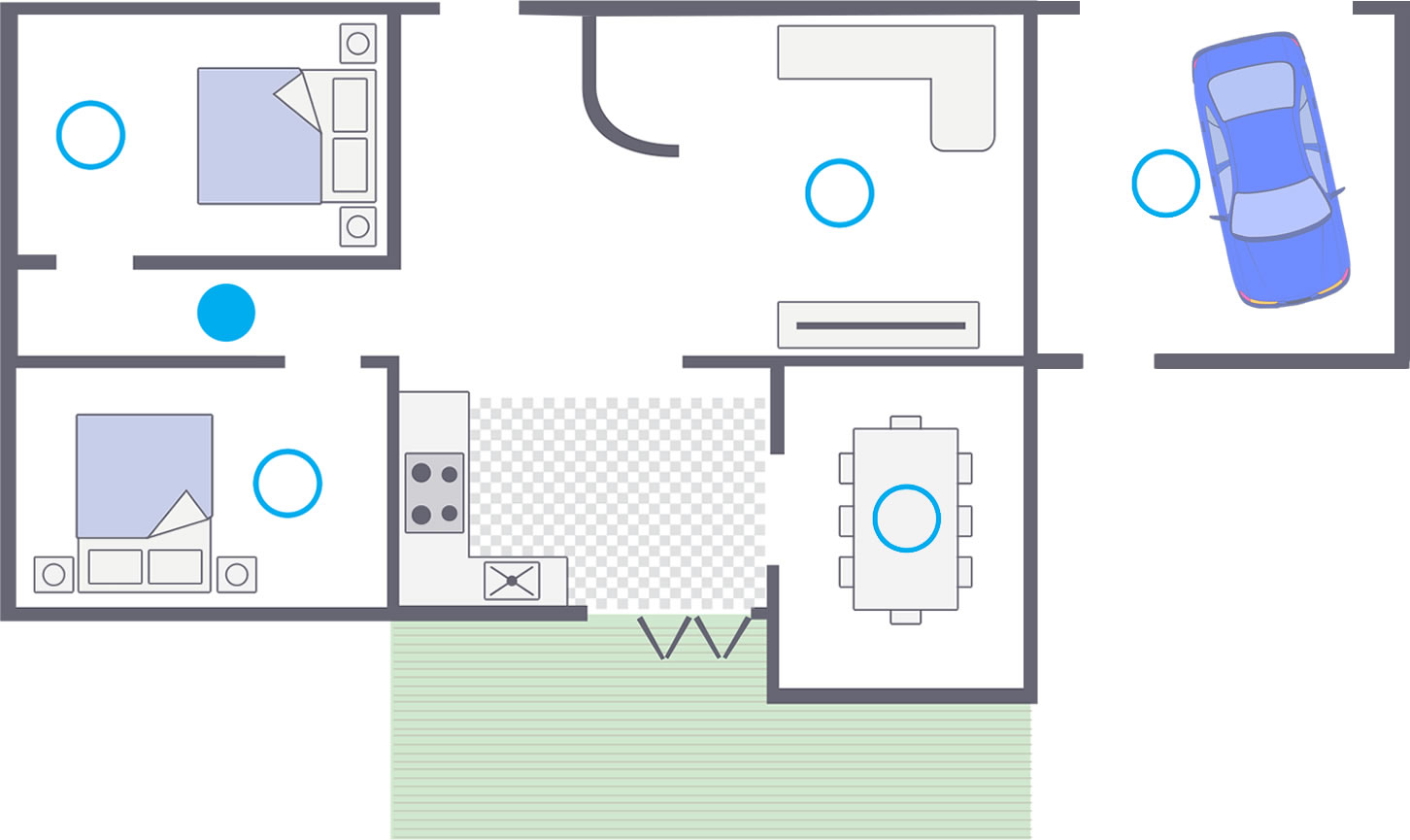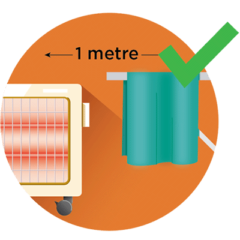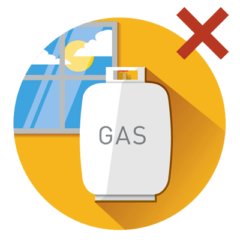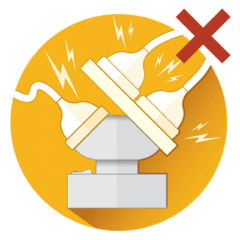Helpful Trick and Tips
Electrical Tips
Smoke Alarm
The risk of a fatality in a home fire is halved if there is a working smoke alarm in a residential dwelling.
Did you know its been over 10 years since smoke alarms became law across NSW… and… most smoke alarms don’t last 10 years. What is the law?
Smoke Alarm Installation Guide
Where do I install them?
In addition to the minimum requirement of one smoke alarm per level, Fire & Rescue NSW research recommends installing smoke alarms in all bedrooms and living spaces (including hallways and stairways) and even the garage.
Avoid fitting smoke alarms in or near your kitchen or bathroom.
The ideal position is on the ceiling between sleeping and living areas.
Use the plans below as a guide.
Single floor plan
Smoke alarms for recommended protection.
Smoke alarms for recommended protection.

Multi-level floor plan
Smoke alarms for recommended protection.
Smoke alarms for recommended protection.

How do I install them?
Hard-wired smoke alarms must be installed by a licensed electrician.
Always install smoke alarms in accordance with manufacturer’s instructions.
If it is difficult for you to fit one yourself, contact your local Fire & Rescue NSW station for advice.
Further Information
These instructions relate primarily to residential dwellings. For shared accommodation and other commercial premises where people sleep, refer to the Department of Planning Building Regulation Advisory Note
More information on building classification is available at the Building Code of Australia.
Key Points
- NSW legislation stipulates that residents must have at least one working smoke alarm (sometimes mistakenly referred to as “smoke detectors”) installed on each level of their home.
- A person who does not comply with the legislation is guilty of an offence (maximum penalty $550).
- On average, 21 deaths occur in residential fires across NSW every year. Based on FRNSW Fire Investigation and Research Unit case study research.
- Fire & Rescue NSW is encouraging (recommended) residents to aim for a higher level of protection by installing interconnected smoke alarms in every bedroom, living space (including hallways and stairways) and even the garage in their home.
Smoke alarm maintenance guide
Once a month
Test your smoke alarm batteries every month by pressing and holding the test button for at least five seconds until you hear the beeps.
Every 6 months
Vacuum dust off your smoke alarms every six months.
Keeping your smoke alarm free of particles to help reduce false alarms and ensure smoke can easily reach the internal sensor.
Every Year
Replace lead or alkaline batteries every 12 months.
Every 10 Years
Replace all smoke alarms with new 10-year lithium powered smoke alarms every 10 years, or earlier if specified by the manufacturer.
Winter fire safety
Help us, help you by taking action to ensure you and your family stay safe over winter.
If you do your bit to minimise the risks in your home, we can all stay safer together.
Prevent fires from heaters & open fires
- Keep everything one metre away from your heater.
- Install and use as per manufacturer’s instructions.
- If you suspect a fault, have the heater serviced or replaced.
- Always supervise young children in rooms with open fires or working heaters.
- Ensure flues and chimneys are regularly cleaned.
- Strong fire screens should be set up in front of open fires.
- Never use wheat bags in bed.

Carbon monoxide from open fires
Avoid the use of external heating equipment inside your homes. This includes those that use ‘heat beads’ or LPG as a fuel source.
This type of equipment is not suitable for indoor use and can lead to a build up of carbon monoxide which could be fatal. All heating devices should be used in accordance with manufacturer’s recommended practices.


Be prepared with an escape plan
Have a home escape plan. Identify at least two ways out of each room. Practise the plan with your family so everyone knows how to get out.
Prevent Electrical fires
- Don’t overload powerpoints and powerboards.
- Regularly check electrical leads for damage and faults.
- Never use faulty electrical leads or appliances.
- Store your electric blanket safely – roll don’t fold.
- Before going to bed, turn off all electrical appliances at the powerpoint.
- Turn off electric blankets and heaters when you’re not at home and before getting into bed.

Keep looking when cooking
Never leave cooking in the kitchen unattended.
Our firefighters respond to about 3,865 house fires each year, with 45% of these originating in the kitchen.
Prevent clothes dryer fires
- Clean your lint filter before or after each use.
- Ensure there is adequate air flow around your dryer.
- Don’t leave the dryer operating when you’re not home.
Schedule an appointment with
one of our specialists today.
